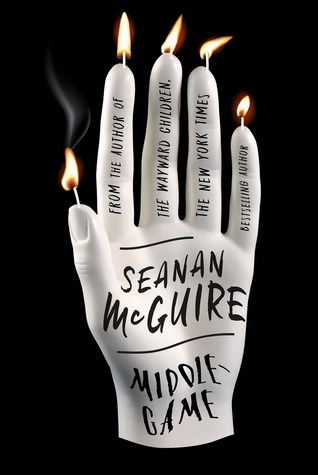- The Good: A fantasy of alchemy; story-within-a-story; ambitious plot
- The Bad: Simple villain
- The Literary: New vocabulary words; interesting analogies
Roger is a natural with words, language, and story. A continent away, a little girl with the same birthday, Dodger, understands the world through numbers and math. Though they don’t know it, they are twins, created through alchemy by Reed, who has a plan to raise the brother and sister to their full potential, to harness the power of the universe through the Doctrine.
I’m already a big fan of Seanan McGuire’s Wayward Children series, and I expected to really like this book. She has a way of portraying the loneliness of a smart child with clueless parents and of capturing the magic of unexpected places. Middlegame is all of those things on top of a suspenseful race against time to meet your sibling, become gods, and defeat your maker. The story itself is great, and the structure of the novel is nonlinear, with alternating multiple timelines and POVs that ramp up the tension. The ambitious plotting skillfully unravels key backstory, while moving the present in unexpected directions, all with great clarity.
I love From Over the Woodward Wall, the fantastical story-within-the-story, and I’m ready to get my hands on a copy and read about the land of Up and Under. I know the fictional children’s book series are the secret alchemical teachings of Asphodel, Reed’s mentor, but I also just want to know all about Avery and Zib’s adventures.
If you grew up with Dorothy on the yellow brick road, it’s time to take the journey to the Impossible City in all its gold and mercury glory!
She’s an earthquake forced into the shape of a girl, and as the door swings shut behind them, he wonders whether the fault lines at the heart of hear are about to give way completely.
